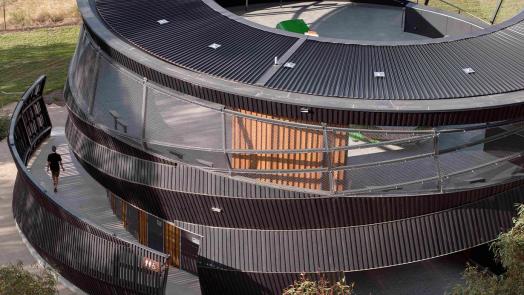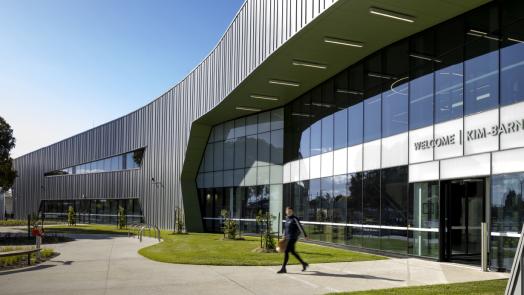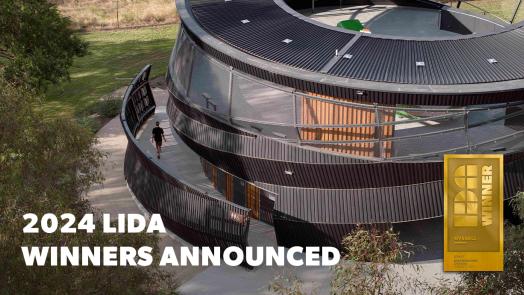When clients talk about ‘sustainable design’, not everyone is on the same page. For some, it’s about reducing their impact on the environment over the longer term. Others, though, have more immediate goals in mind.
That was the case for the owners of this home in the Melbourne suburb of Balwyn North, winner in the Residential Projects category in the most recent Lysaght Inspirations Design Awards. Director of Chan Architecture, Anthony Chan, says thermal comfort was the driving force behind their interest in sustainable design.
“It was not so much that they were solely focused on sustainability, but they did want to be comfortable without the need for mechanical heating and cooling,” he says. “It was all about a well-performing house that would save them money in the longer term.”
Chan designed a two-storey home with three bedrooms and two bathrooms plus a more private living space on the upper floor featuring a skylight. A guest bedroom and ensuite on the ground floor is off to one side of the entranceway but central to the design is a spacious open plan kitchen, dining living space, characterised by a double height void. To the eastern side of the building, a slender full-length window offers views to the Dandenong ranges.
A simple palette of concrete, timber and steel creates a rhythm for the internal spaces that is at once contemporary and warm while the masculine angles of the spaces are broken up with more feminine curves for the walls of the bathroom and living space upstairs. Chan says the challenge was balancing the desire for privacy with the need for space.
“They really liked that sense of space,” he says. “They are definitely people who like to spend time at home, and they wanted that feeling of space internally.”
To ensure the house performed well, Chan positioned the house on the 2000sqm block so that the main living areas faced north, allowing the polished concrete slab to passively regulate temperatures, keeping the house naturally cooler in summer when the sun is higher and warmer in winter as the slab releases heat into the evening.
A thermal chimney directs hot air up and out of the house via windows on the top floor and the entire house has been heavily insulated, with the ceiling insulated to R7, the highest insulation batts available on the Australian market right now.
Outside, LONGLINE 305® cladding was the obvious choice, thanks to its versatility, flexibility and reflective qualities.
“The clients really wanted longevity and robustness and we wanted a product that could wrap around the building,” says Chan. “That pretty much narrowed it down to LONGLINE 305® cladding.”
Shaped from COLORBOND® steel in colour Surfmist®, the cladding also reflects, rather than absorbs the heat.
“The idea was that they wanted something that would reflect the light and make sure that it didn’t get too hot inside,” he says.
The sloping roof also allowed plenty of space for a substantial photovoltaic system, providing more than enough power for the family.
Timber cladding and stacked stone break up the facade, while recessed reveals on the upper windows add depth and a sense of permanence to the home.
“When we do these recessed reveals, it makes it look a bit more substantial and gives it a bit of depth,” Chan says. “The advantage of using LYSAGHT® products is that we’re assured that it’s all shaped from COLORBOND® steel so the flashings are the same colour as the cladding so that it looks like it is wrapping.”
Given Balwyn North was once dominated by farmland and orchards, the choice of cladding was also a nod to the history of the site, albeit a more sophisticated treatment thanks to the taller ribs and sharp shadows of the LONGLINE 305® profile.
“When we got there, the old farmhouse was still on it,” Chans says. “It had been butchered over the years, so we designed this as a reference to the history of the site, with a barn-like shape.” And after several months in the house, you could say the new building is already bearing fruit.
“It was always hard to know how well it would perform so I got in touch with the owners a few months after they moved in,” he says. “They said it was amazing all through their first Melbourne winter - the temperature never dropped lower than 19 degrees inside the house. For such a big internal space with a double height void, that was a great result.”



